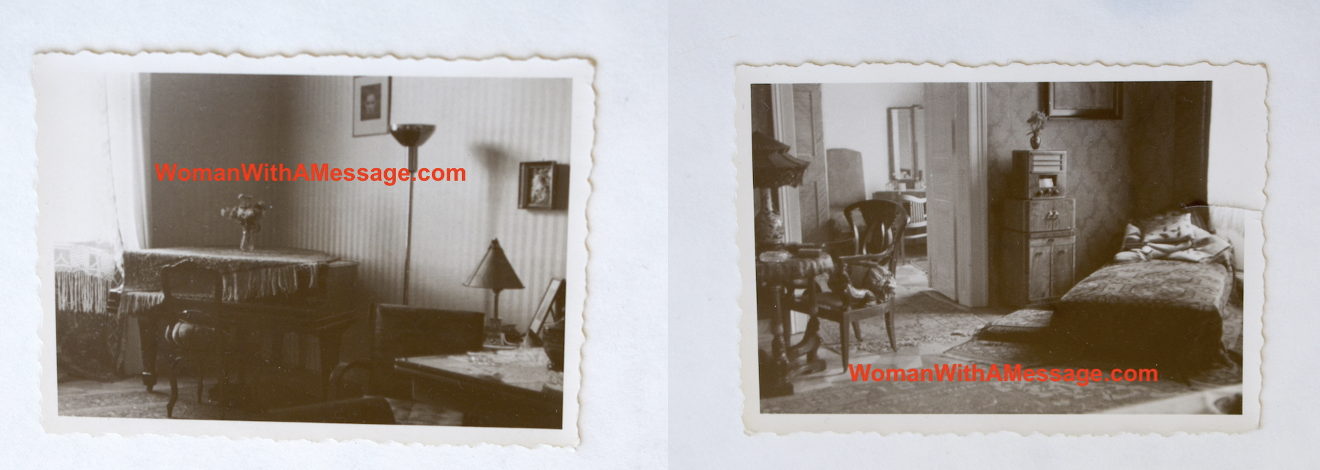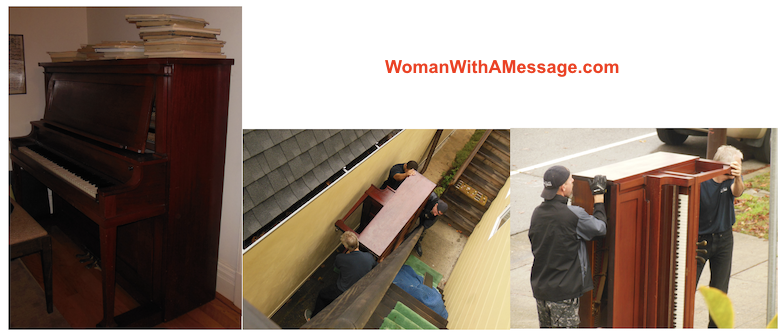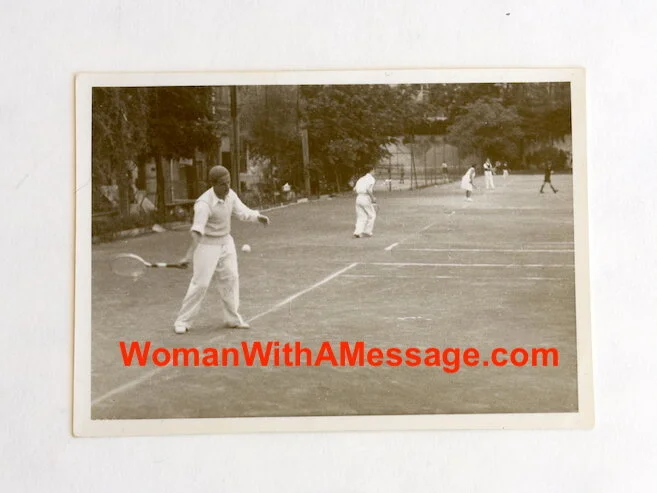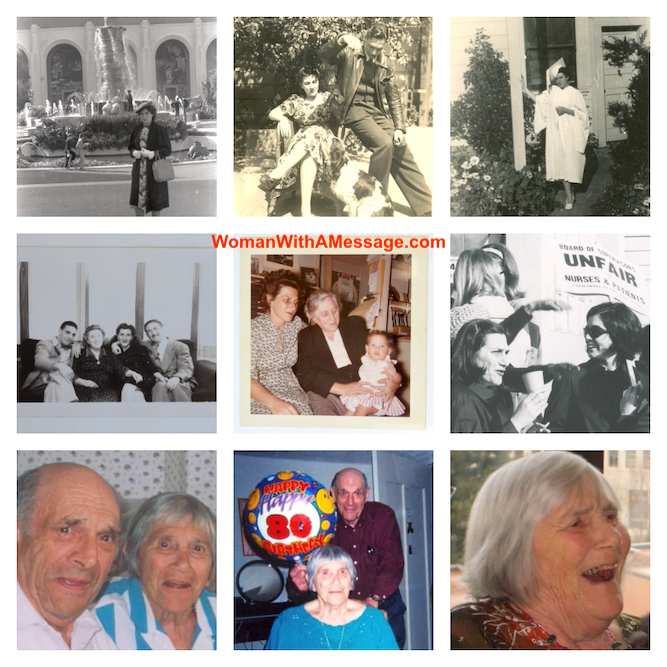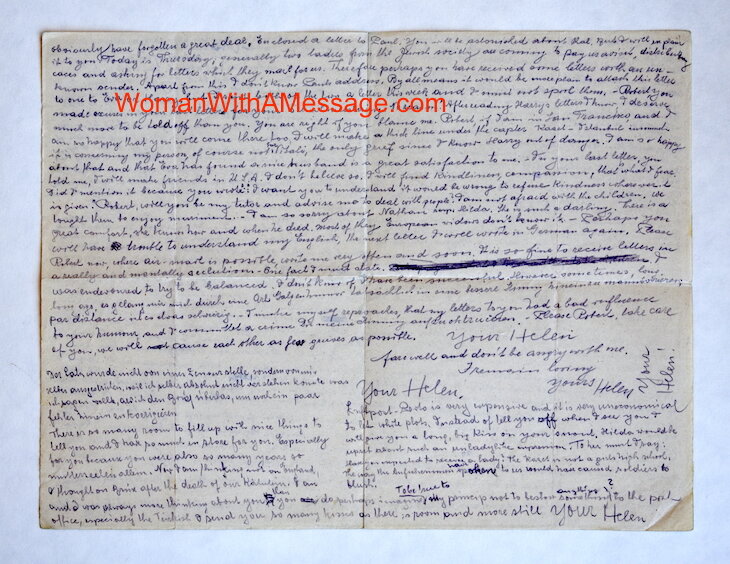Link to Family Tree to understand family relationships.
A letter from Helene to her children, musing on events from long ago.
Vienna, 5 August 1941
My dear children! Since I lack your letters, I am not sure if you have gotten all of ours, but I hope that even if you haven’t, you know something about the state of things. One of our acquaintances, hoping they wouldn’t worry about anything, wrote to his parents that everything will be taken care of in Washington. We shall see! [in Italian] The girls [in English] just called me. They have to move on the 11th of this month but they haven’t found another apartment (or rather, closet) yet. Olga wrote to her brother that she cannot send any more packages because she’s hurting for money too and is also not allowed to send things any longer.
We are doing pretty well, just that we really miss your letters. Yesterday we went for a walk to Krieau and from there we went to the Winterhafen [wharf] and then we went to Lusthaus [in Prater park]. I had some strange memories when we approached the Stadlau train station. It was 1914. Paul wrote to me back then that he would be there about 8 o’clock with his company, but he would not be allowed to leave the train station. I got the letter in the afternoon and I was of course there early. I waited a second hour and believed I would have to take my little bagged dinner back home with me when from a military train which had just arrived, a tall bearded soldier who smelled of sweat appeared and he came over to the water pipe where I had wisely posted myself. I was about to ask him if this was the train from Leitmeritz when I realized it was Paul. I remained on the train platform until the train left. When I didn’t see anything more of him or the train, I started to make my way home. It was pitch black and I had no idea which direction I should go. I do have a good sense of direction and I took my chances until I found a street with streetcar tracks, and that let me know that I was on the right path. I heard steps behind me and when I carefully turned around, I saw the contours of a man. I thought it would be better to have him in front of me or next to me rather than behind me, so when he got a little closer, I spoke to him and I asked him the best way to get to Praterstern. I lived in Salzgries at that time. He seemed trustworthy and he was surprised that I was alone and in this area. I explained the reason and he said I could walk along with him for a while. He was going to “Magenschein”, an obscure inn, which I only knew from a couplet. It would be child’s play to get farther after that, but my heart was still pounding. At 1:30am I arrived home. After that, I was not in the area of Stadlau anymore. I did pass by “Magenschein” a few times and when I was at the Gänserhäufel [means goosebumps], or by the old Danube, I could never go there without remembering my adventurous night and taking my hat off to myself for my bravery. I don’t think I could have done it a second time.
The second memory I have is of an excursion made by bicycle by Harry and Paul. I remembered that when I saw the ferry that the two of them had taken when they were coming from Lobau [Vienna flood plain area]. I tried to find the tree where Harry had put to the test who would win: his skull or the tree. I didn’t find it, the tree I mean. Probably the tree didn’t survive the concussion it got from that. It’s a good thing I wasn’t with them that time, but I remembered that story. Do you remember it? When a person’s main activity is directing their thoughts to wandering into the past and the future in order to escape the present, episodes that one would think were long forgotten come into memory.
I hope that we will be able to get good news from you soon and that our papers are already on a desk in Washington waiting to be sent off.
Everl should write to me about what she knows about Harry since I don’t hear anything from him, just like last year. Also, I’d like to hear about Paul and all the others. Do you ever hear anything from Robert?
I kiss you and I ask you to keep my love,
Helen
In today’s letter, Helene describes a similar walk down memory lane to the one she talked about in the June 4 post.
Since I did not have Paul’s World War I letters translated from the old German script until recently, this letter was the first inkling I had of how close Helene was to her nephew throughout their lives. In 1914, Helene would have been 27 years old and Paul would have been 19. This letter also confirmed for me that Helene was in Vienna as early as 1914. How wonderful that she would drop everything and make her way through the dark streets of Vienna just to be able to see her nephew for a few minutes at the train station as his unit made a brief stop.
Her second memory also lets us know that Paul spent a lot of time with the family. Although he was almost 20 years older than his young cousin Harry, he happily joined him on a bicycle ride – probably in the early 1930s.
In many letters we’ve seen, Helene recalls happy memories from the past, rather than dwelling on the unpleasant present. In today’s letter she addresses that tendency explicitly.













